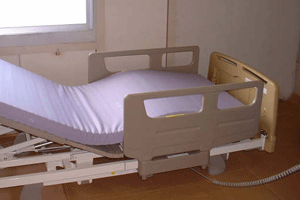
Ephania Chirau, a 33-year-old single mother will not forget the day she was diagnosed with typhoid, a water-borne disease stalking some of Harare’s poorest neigbourhoods.
By Phyllis Mbanje
Chirau, a vendor, feels let down by the city council, which she blames for poor hygiene standards in the capital’s oldest suburb of Mbare and a hotbed of the typhoid outbreak that has killed two people and left hundreds sick since it was first detected late last year.
“We have been branded a dirty people and yet if you come into my house it is always clean,” she said as she narrated her ordeal in dealing with a disease that has become synonymous with the rainy season in Harare.
“I boil our water before use and we do practice handwashing but I got infected,” added Chirau from Mbare’s 8th Street.
Chirau, a mother of four is angry that the non-provision of services by council compromised her health.
She is also bitter at her community which is now shunning her and branding her family “unhygienic”.
Typhoid bacteria called Salmonella typhi has its origins in humans.
- Chamisa under fire over US$120K donation
- Mavhunga puts DeMbare into Chibuku quarterfinals
- Pension funds bet on Cabora Bassa oilfields
- Councils defy govt fire tender directive
Keep Reading
It is found in the faeces of infected people and spreads through faecal contamination of food and water.
This occurs in situations where there is poor hygiene related to food preparation and poor sanitation.
“I heard people are gossiping about me and even telling their children not to come to my house. That is so painful. I have lived here for a very long time,” Chirau said, wiping away tears.
For her, being shunned by her neighbours is worse than the pain she endured when she was sick.
“I have stopped going to gatherings and I keep myself busy in my vegetable garden,” she says.
Her vending business has also suffered because no one will buy from her for fear of contracting the typhoid bacteria.
“No one has been to my market stall which I usually put out by the gate,” Chirau said.
“I am considering relocating to the central business district where there are not many people that know me.”
Speaking about her ordeal, Chirau said she just woke up feeling unwell. It was just after the New Year celebrations.
“Initially, I put it down to flu because of the headache. I rested the whole day but the next morning I was feeling quite nauseous and had a fever,” she recalled.
Diagnosis of typhoid remains a challenge because the symptoms are too generalised and according to Lucille Blumberg, deputy director at the National Institute for Communicable Diseases and a member of the joint staff, University of the Witwatersrand mimic those of other infectious diseases.
Other symptoms include abdominal pain, cold shivers, hot sweats and loss of appetite. Symptoms usually increase over a number of days.
Chirau’s sister from Bindura who had visited at the time advised her to go to the clinic as her condition worsened.
However, before she could go for medical checkup, a distant cousin passed away in Murehwa and Chirau attended the funeral.
“I thought whatever the illness was, it would go away on its own but as my condition worsened, someone at the funeral reminded me about typhoid.”
Her worst fears were confirmed. After a battery of tests, she tested positive to typhoid and was immediately put on treatment.
“I was given some antibiotics and detained for a few days at Beatrice Infectious Diseases hospital,” she said.
Chirau said while in hospital she worried about her children whom she left under the care of her nephew who is 22 years old.
“I stressed about my kids, especially the youngest one who is only three years old,” she said.
“There is too much uncollected rubbish, the sewer system and the water sources are not safe.”
Meanwhile, Harare’s health director Prosper Chonzi said the local authority was not the only one to blame for the typhoid outbreak, saying the disease was a manifestation of both poor service delivery and lack of acceptable hygienic practices.
“We take the blame for poor service delivery and the residents have every right to complain,” he said.
“But we have to do a bit of self-introspection. What can the local authority do, what about the community, down to the individual level?”
Chonzi said the city should be able to provide potable water, collect garbage and ensure there is no free-flowing sewage.
“People have a choice on what sort of food they eat. Always boil your water or use aqua tablets,” he added.
Chonzi said typhoid case management had not posed any challenges to council since they had adequate antibiotics.
They have also introduced a 24-hour treatment camp at Edith Opperman clinic, which is only a few metres from Mbare’s 8th and 9th street.
“We are offering free services for typhoid, including the screening,” he said.
On provision of water, Chonzi said the dam levels were rising and that should remarkably improve the situation.
“But the coming of the rains has its own problems,” he said. “All the filth will be swept into open wells that have sprouted all over the city.”
Chonzi said the removal of food vendors in the CBD was one of the many strategies they had adopted in fighting typhoid.
“It is not a magic bullet but just one of the many strategies,” he said.










